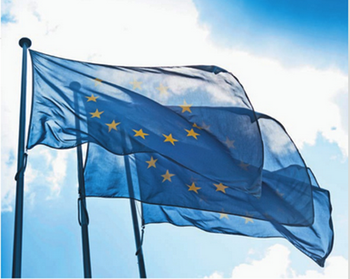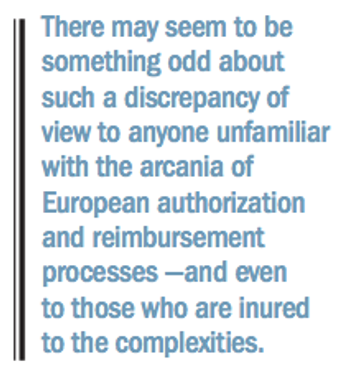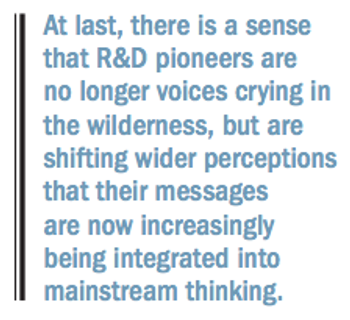
EU Research Commissioner Carlos Moedas says all data generated under the $350 million Horizon 2020 projects will be open access. This supports the shift of greater cooperation in research and a new era of global and open science.

Peter O'Donnell is a freelance journalist who specializes in European health affairs and is based in Brussels, Belgium.

EU Research Commissioner Carlos Moedas says all data generated under the $350 million Horizon 2020 projects will be open access. This supports the shift of greater cooperation in research and a new era of global and open science.

A look at the EMA’s proposed guidance revisions for first-in-human studies.

The European Medicines Agency is proposing changes to the current guidelines on first-on-human clinical trials to improve risk-based strategies.

While Europe is feeling the effects of the recent UK Brexit vote, the European Medicines Agency is continuing onward with business as usual despite questions over its location and the future of its employees.

European consumers are concerned that faster drug development processes being pushed by regulators can be unsafe for patients. With the EMA spearheading discussion on medicines adaptive pathways to patients, or MAPPs, more convincing is needed.

Peter O’Donnell writes that Brexit or or no Brexit, it will be interesting to see how far the industry rules are complied with across Europe now that the EFPIA disclosure code is also in force.

The UK's EU departure threatens to damage the foundation of several European-wide drug safety and innovation initiatives, and also leaves recent boasts from officials on things like partnership, networking, and transparency just empty words.

Renewed attention on ways to tackle this age-old scourge is building in Europe and beyond.

Regardless of whether the UK does decide to leave the EU or not, the concern over medication will remain for the rest of Europe. The needs of these countries will persist at a human and public health level for more effective medicines and more effective ways of paying for them.

Peter O'Donnell writes that the EMA surprisingly diverted from it's usually strict boundaries on it's annual report published in May.

The Innovative Medicines Initiative, a drug research program run by the European Commission and the EFPIA, is inviting bids to run a pilot program regarding preclinical research and development.

The European Reference Networks aims to join the efforts of the best specialists in Europe to tackle complex or rare medical conditions. The goal is to create networks covering a specific disease with an emphasis on procedures or techniques related to treatment.

Months of rumblings across Europe that the scheme to promote orphan drugs is being abused by drug firms to maximize profit instead of innovation have been heard. Those rumblings have now turned into shouts.

New policy hopes to calm the fervor around clinical trial data disclosure and confidentiality issues.

Pharmacists have new prominence in a new European system, created jointly with drugmakers and wholesalers and parallel traders, that will provide on-line identity-checks on each individual medicine from factory to pharmacy.

The MHRA is seeking input on identifying new uses for an existing drug in another indication, or creating novel combinations and sees it as "an emerging and dynamic field of drug development."

‘PRIME’ (short for 'PRIority Medicines') will offer early advice to medicine developers so that they have the best chance of producing robust data on benefits and risks, and allow more rapid assessment.

Hans-Georg Eichler, the Senior Medical Officer at the European Medicines Agency, addresses adaptive pathways as a way to "ensure sustainability of the innovation system and the healthcare systems."

This week, The Netherlands, which is in charge of EU business for the first six months of this year, has convoked an intensive round of meetings to show that it really is taking health policy seriously during its turn in the rotating EU presidency.

European health officials and patient advocates speak bluntly on the treatment access dilemmas for patients with rare diseases-and point to opportunities in translational research and joint negotiations with manufacturers as possible solutions to close gap.

Slightly more than a thousand healthcare research projects were funded by the European Union between 2007 and 2013, at a cost of $6 billion, revealed Carlos Moedas, European Commissioner for Research, Science and Innovation, at the end of January.

Incoherencies in Europe’s drug-access arrangements raise questions, debate.

Telling signs from U.S., Russia, Latin America and UK indicate that governments are squeezing as much value as possible out of their spending on pills and procedures.

Although only the beginning of an exploratory process, the EMA is being accused of colluding in a conspiracy to favor drug firms at the expense of patient protection.

The European drug research consortium, IMI2, is running a program entitled Big Data for Better Outcomes Programme to promote "the evolution towards value-based and more outcomes-focused" healthcare, by generating methodologies and data that can inform policy debates.

EMA board announces the new clinical trial rules have shifted still further away, and is now October 2018.

Despite orphan-drug R&D and approval being all the rage, issues such as patient access could leave these treatments out in the rain.

Many of the most problematic provisions for health research were eased by amendments that provided exemptions from the overall constraints.

Several initiatives are focused on integrating biomarkers and personalized medicine techniques into studies.

Officials tackle such areas as early diagnosis and treatment, patient access, and personalized medicine